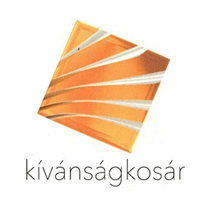An application was filed to register the device mark KÍVÁNSÁGKOSÁR (ie, basket full of wishes) for services in Classes 35, 38 and 40.

An opposition was filed against the application. The opponent stated that he had publicly used the same term for more than 10 years with respect to his entertainment programmes, which he proved with statistics and physical and electronic publications, among other things. Further, he claimed that the term was original and had been created by him. As such, the opponent stated that the application infringed Section 6 of the Act on Unfair Market Behaviour 1996.
The Hungarian Intellectual Property Office (HIPO) rejected the opposition in respect of the opponent's prior use and registered the mark. The HIPO held that the prior use would be relevant only if consumers were likely to associate the mark with the prior usage. Further, it held that the term used by the opponent was not identical to the applied-for mark, as the latter was a characteristic coloured device. The HIPO did not consider the opponent's arguments concerning copyright infringement.
The opponent requested a review by the Metropolitan Tribunal. This was successful – the tribunal annulled the HIPO decision and ordered a new procedure. The substantial procedural fault of the HIPO lay in its failure to examine the copyright claim.
In the new procedure before the HIPO, which is pending, it must examine whether the opponent sufficiently proved the alleged copyright infringement. If the opponent's mark is original, the trademark application will conflict with its copyright (1.Pk. 22.294/2017).
The opponent presented two claims: the first was based on unfair competition (prior use) and the second was based on authors' rights (the originality of the slogan 'kívánságkosár').
In the first phase of the procedure, the HIPO examined only the first claim, dismissing it on the grounds that there was no likelihood of confusion between the slogan 'kívánságkosár' and the device mark KÍVÁNSÁGKOSÁR. This statement was surprisingly not contested by the opponent in its request for a review, even though the slogan had been used for more than 10 years on the TV channels Duna and Duna World. This part of the HIPO's decision arguably reflects its preference for registered marks over non-registered signs. Such a preference also exists in other countries.
It will be interesting to see the outcome of this case in respect of copyright protection of the slogan 'kívánságkosár'. At present there are three KÍVÁNSÁGKOSÁR applications before the HIPO. In addition to the one discussed above, there are two applications pending to register the term as a word mark: one which was filed by the same applicant and another which was filed one year before the other two applications.
For now, the procedural conclusion of this case is clear: the authorities must examine every claim of opposition.




